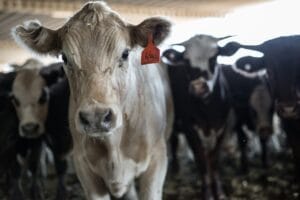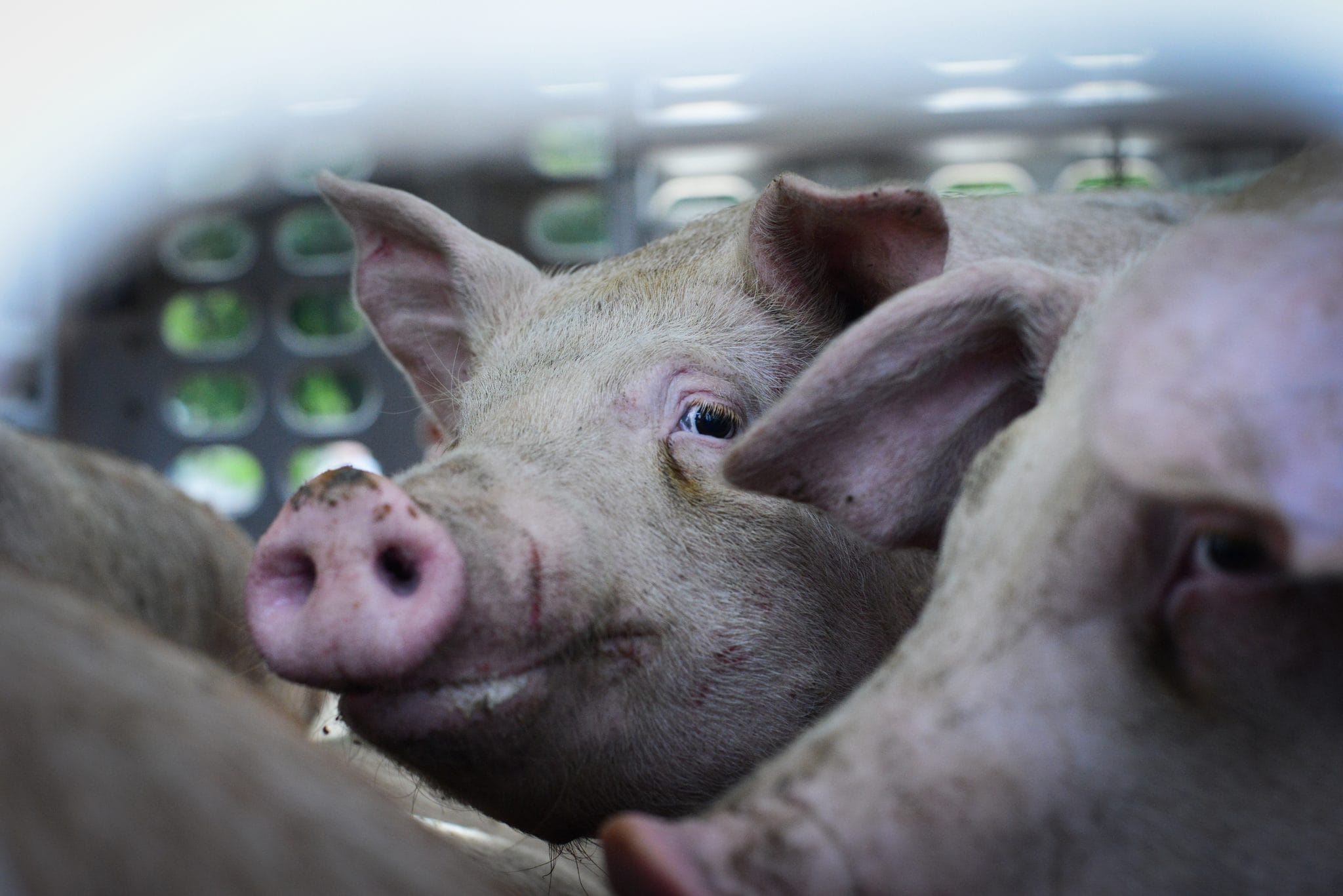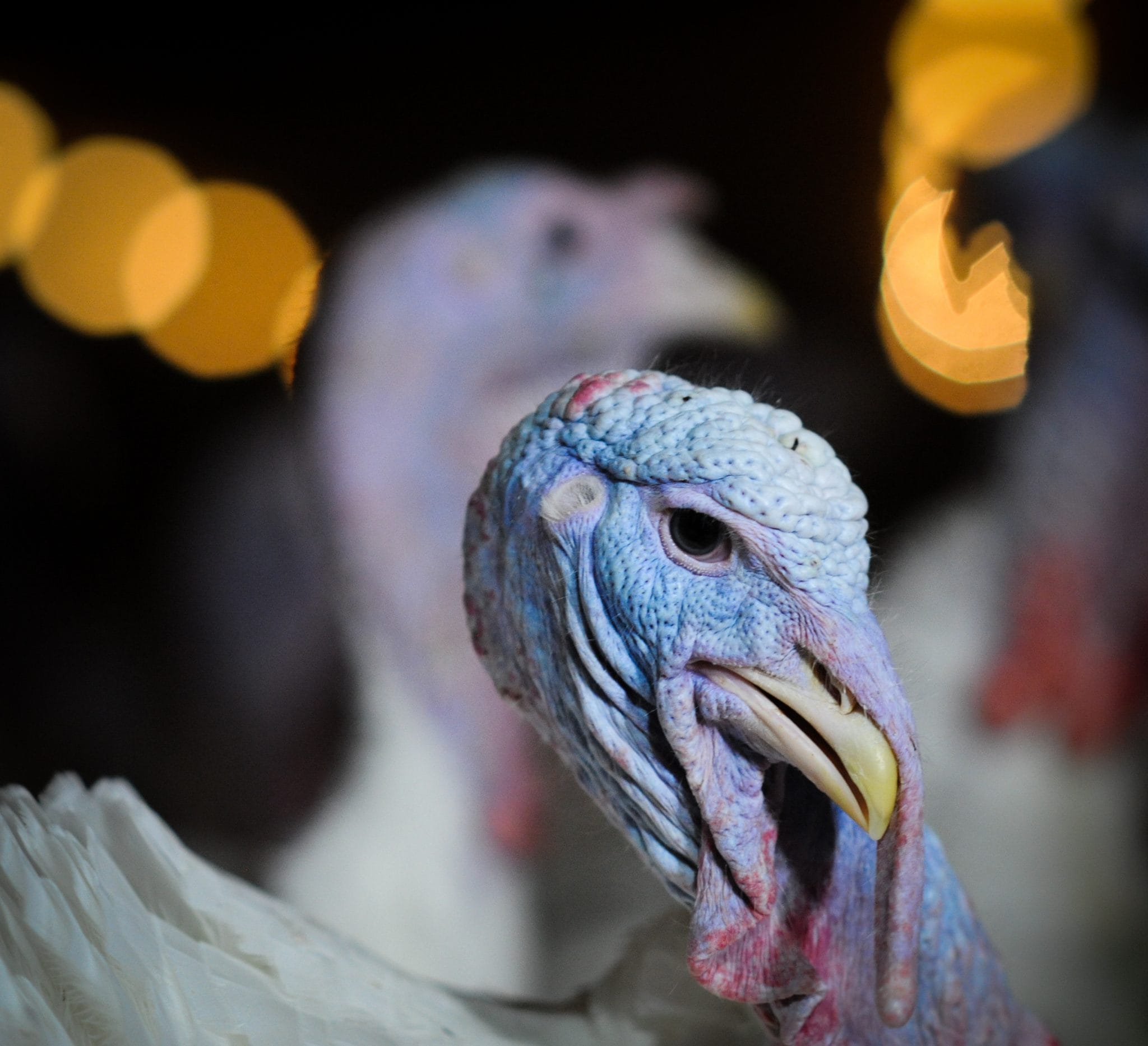Switching to a healthy vegan diet not only saves the lives of animals, it could save your own life, and the future of our planet.
 For the Animals!
For the Animals!
In 2023, over 859 million animals were killed for food in Canada (Agriculture & Agri-Food Canada ), and that figure does not include the millions of sea animals killed by commercial fishing, horse slaughter, exotic ‘meat’ animals or those killed outside of the slaughter buildings (e.g. male chics). It also does not include other animals who die prematurely before making it to slaughter. Animals raised for food are considered mere commodities whose welfare is exploited at the expense of maximizing production. Farm animals have the same capacity for suffering as our beloved companion animals, but yet they are denied the basic protection of animal cruelty laws. This means that the institutionalized violence and abuse of animals in intensive farming practices is both legal and rampant. These innocent animals suffer brutal mutilations, unnatural genetic modifications and intensive overcrowding and confinement. Animals raised for dairy and eggs also endure horrific suffering on factory farms. Male dairy calves are taken away from their mothers shortly after birth to be raised and killed for veal. Female dairy cows are repeatedly artificially impregnated only to have their babies stolen from them so that humans can drink their milk. Male chicks are ground up alive or suffocated to death because they are of no “value” to the egg industry, and egg-laying hens spend their entire lives inside cramped battery cages that are so small they can’t even spread their wings or turn around. After their production declines dairy cows and egg-laying hens are sent to the slaughterhouse where they are ultimately killed for their meat. The most powerful and only direct way to reject this inherent cruelty is to adopt a vegan diet! To learn more about the cruelty involved in raising animals for food visit Farm Sanctuary for species specific information. We also encourage you to learn about farm animal behaviour, emotion and intelligence by viewing “The Someone Project”.

What about Humane/ Ethical Meat?
All animals, no matter how well they are treated when alive, fear death and even animals raised “humanely” are eventually sent to the slaughterhouse to be killed. Moreover, many of the cruel practices inflicted on animals in factory farms (e.g., reproductive exploitation, destruction of families, mutilations, etc.) are also routine practice on small, free-range farms. Ultimately, if people are concerned about the treatment of farm animals then they must also believe that it is wrong to subject innocent sentient beings to unnecessary harm. This in itself represents a paradox, because killing animals (regardless of how they were treated) is the ultimate act of unnecessary harm.
For the Planet!
Raising animals for food not only causes immense animal suffering, but it is also wreaking havoc on our planet. According to the World Watch Institute, modern animal agriculture is responsible for an astounding 51% of the world’s greenhouse gas emissions, which is more than all forms of transportation combined! Factory farming is the leading cause of deforestation with massive amounts of rainforest being cleared for animal-grazing and crops used to feed farm animals. According to the United Nations, switching to a plant based diet is the single most effective choice that a person can make to combat the effects of climate change. Saying “no” to animal products is also the simplest way to take a stand against inefficient distribution of food which disproportionately affects the poorest people in the world. The World Health Organization estimates that up to half the world’s edible crops are used to fatten up livestock instead of being used to feed hungry humans affected by malnutrition. They estimate that just a 50% reduction in meat consumption in developed countries could save over 30 million people from malnutrition.

For your Health!
It is well documented that veganism has many health benefits. Well-planned plant-based diets are low in saturated fat, high in fibre and rich in protein, iron, calcium and other essential vitamins and minerals. Consequently, eating a plant-based diet has been scientifically linked to increased life expectancy, and lower risks for stroke, obesity, heart disease, diabetes and cancer. For more information vegan nutrition and health see Physicians Committee for Responsible Medicine.
Making the Transition
Moving towards a vegan diet is a process, but one that is relatively easy with the right motivation. Eating vegan doesn’t mean you have to give up the tastes you love; there are now delicious vegan versions of almost every animal product. NAfA wants to help you go vegan! Contact NAfA for help – get a veg starter kit or download one for free from PCRM. You can also visit our resource page for more information on veganism, transitioning to a vegan diet, vegan recipes, cruelty free living and other animal-rights related links.
